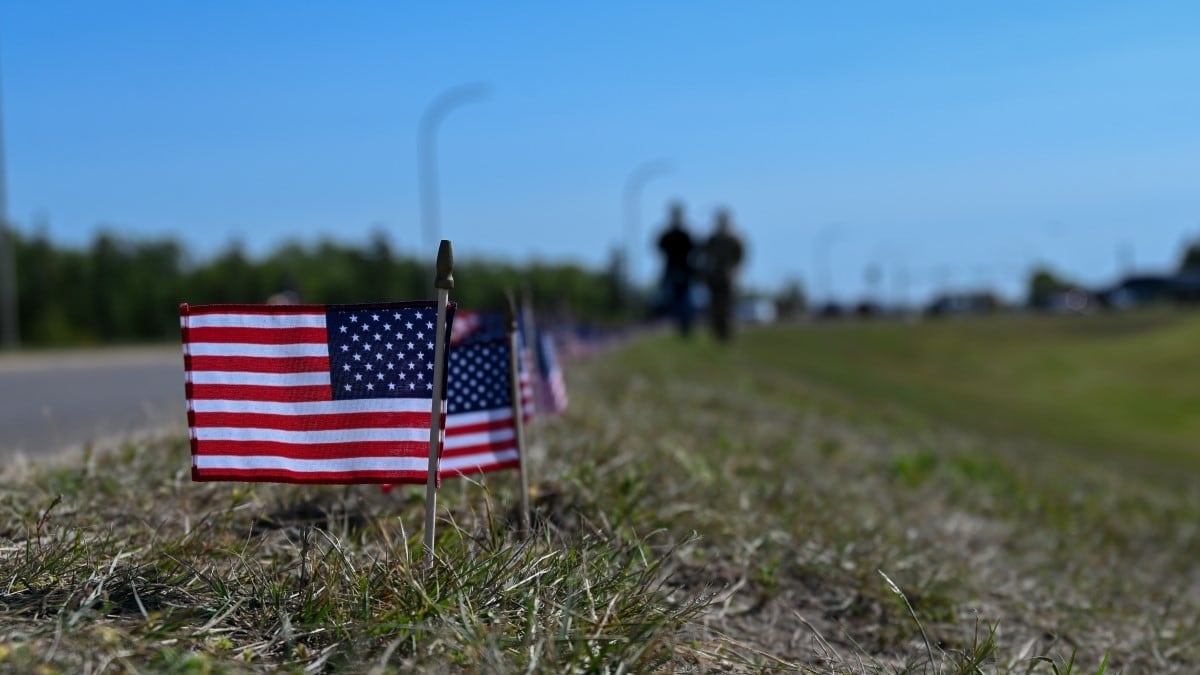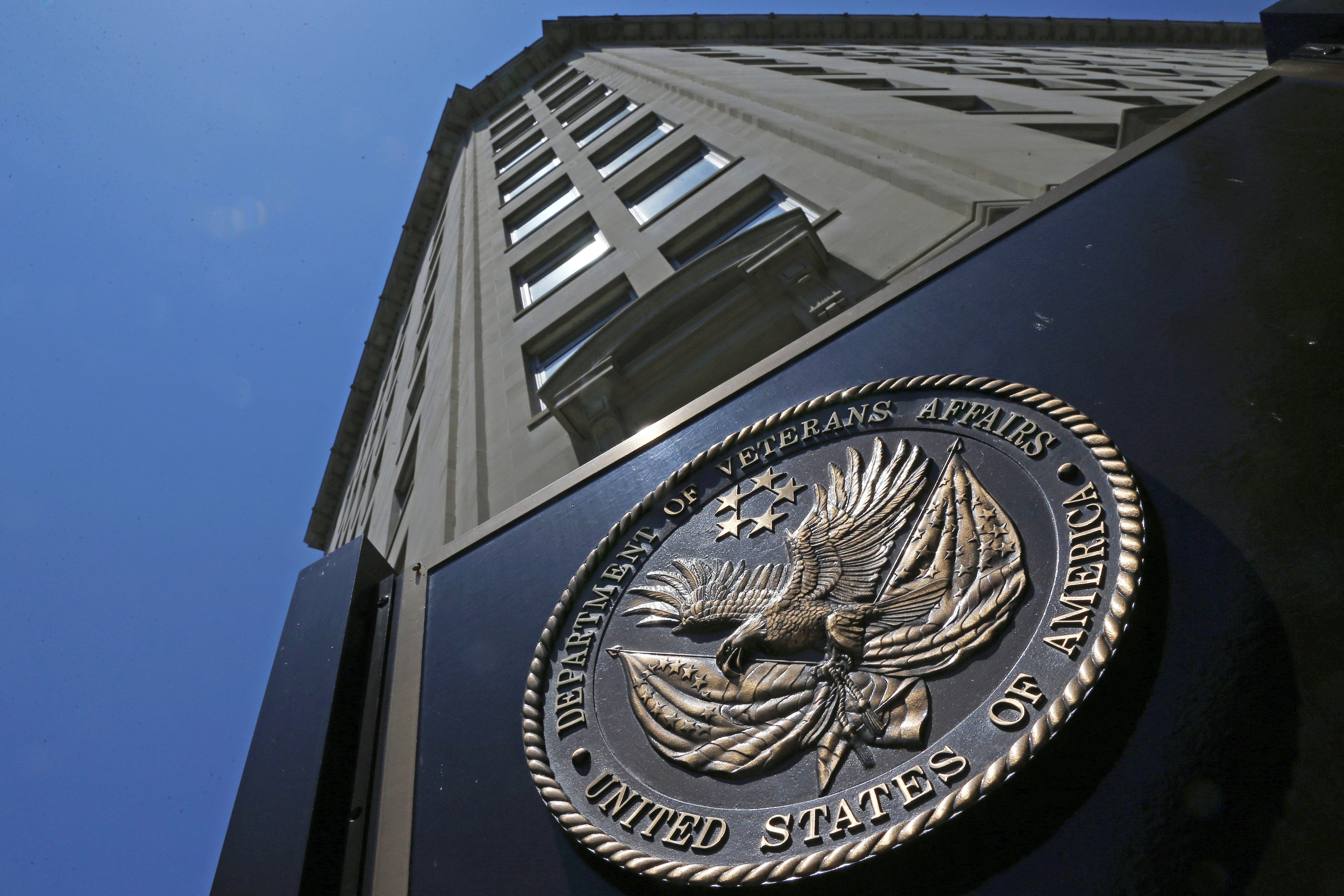Some seek the spotlight, and others have it thrust upon them.
Senior Chief Special Warfare Operator (SEAL/FMF/SW) Ed Byers reluctantly enters that spotlight Monday when he receives the nation's highest valor award for rushing through gunfire to save an American hostage is one of the latter.
Byers, 37, will be presented with nation's highest valor award on Monday, for his actions during a 2012 hostage rescue in Afghanistan, and with it the obscurity of his life in the SEAL teams will forever vanish.
"It's not necessarily anything I welcome, but it's part of my job now," Byers, 36, told Navy Times on Friday. "This isn't something we ask for, this is something that is bestowed upon you. And with it comes some obligations."
Byers is receiving the Medal of Honor for using his body as a shield to protecthimself as a human shield to protect the American hostage, Colorado-based Dr. Dilip Joseph, while simultaneously subduing another enemy as members of his team fired at the rest of the fighters in the one-room hut.
The ceremony will mark a high-point of his 17-year career. Byers enlisted in 1998 and spent four years as a hospital corpsman — three of those with the 2nd Marine Division at Camp Lejeune, North Carolina — before heading off to Basic Underwater Demolition/SEAL training.
He's spent his time on East Coast-based teams, joining the legendary Naval Special Warfare Development Group in 2011, just months after the team also known as SEAL Team 6 carried out its legendary mission to kill Osama bin Laden.
In an interview at the Pentagon, Byers recalled the daring 2012 mission in Afghanistan and the teammate he lost that night.
Friend or foe?
Byers was deployed with them in late 2012 when the team got the call for a raid so fast and risky that it was voluntary: the rescue of an that they'd be rescuing an American doctor who had been kidnapped while working in while working for a religious-based, non-governmental organization in Afghanistan.
"So our mission was a hostage rescue, and in a hostage rescue, that is a no-fail mission," he said. "You have to bring back that person alive."
Helicopters dropped Byers and his team into the Qarghah’i District of Laghman Province, where they spent four or five hours trekkingpatrolling across primitive trails to get to the compound where they believed Joseph was being held.
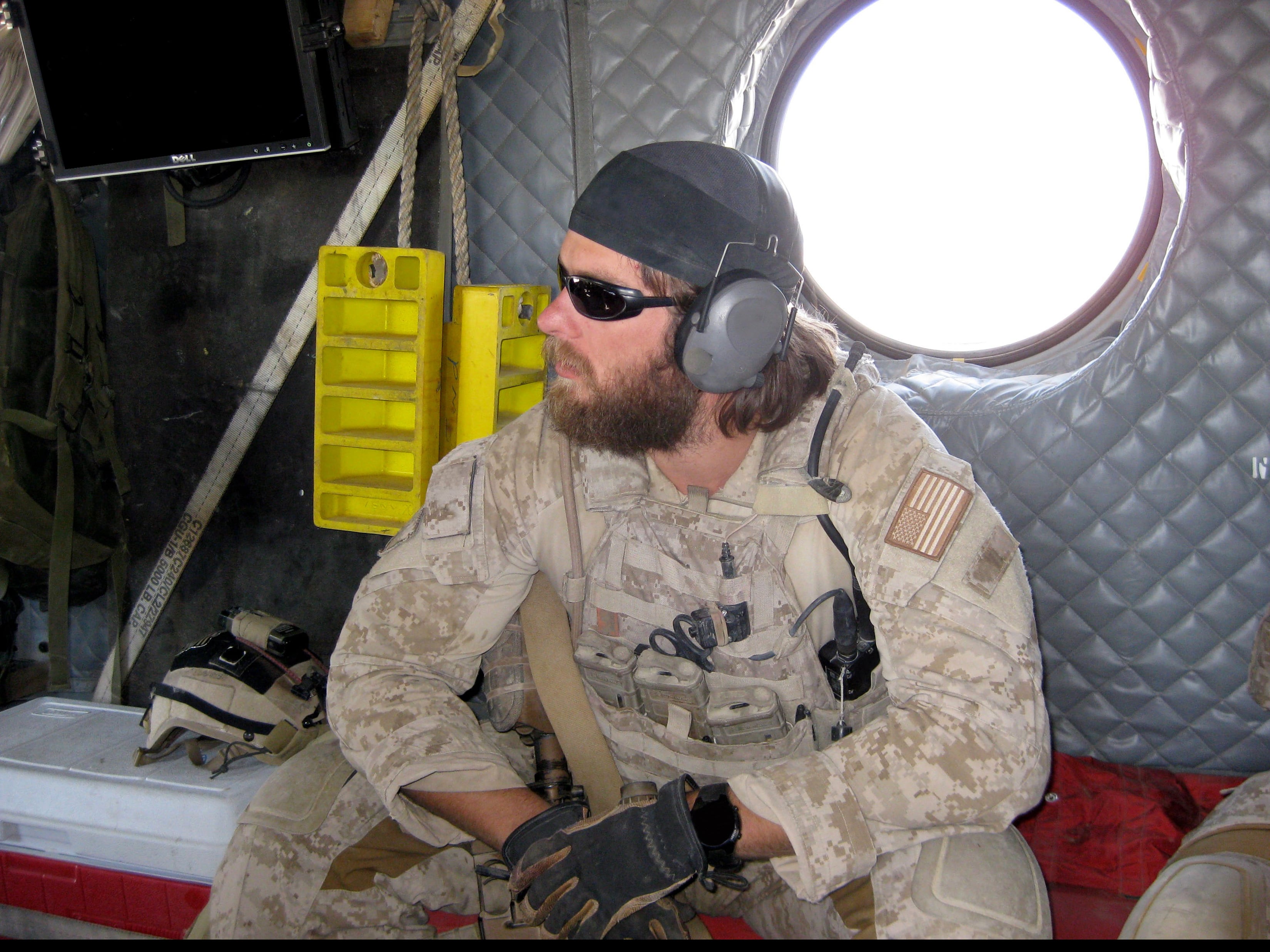
Byers was the second assaulter on the 2012 mission, rushing into the target compound right behind his teammate to find and free an American doctor held captive in Afghanistan.
Photo Credit: U.S. Navy photo
As they approached the building, a guard ran out, Byers recalled. Special Warfare Operator 1st Class (SEAL) Nicolas Checque, the point man, went after him.
"This was a mission like we've done many times over the years, except that it was a hostage rescue, so that was the only difference," Byers said.
Byers sprinted through the compound's entry —door, which wasn't actually a door, but six blankets hung across the entryway, creating a maze of sorts.
Once inside, he spotted an enemy moving along the back wall, and he shot him.
"Then I saw another person was moving across the floor, toward the area where there were some weapons," he said. "The first thing that runs through your mind is, I don't know if that's the hostage or that's one of the enemy trying to get some weapons to fight you."
So He lunged at him.
"I was able to get on top of him and pin him down with my knees, basically straddling him," he said. "And I was having to adjust my night vision and try to get some facial recognition, and try to identify whether he was the American hostage or the enemy."
Once he realized it was a fighter, he shot the man under him. Meanwhile, the rest of the team was calling out for Joseph, who eventually spoke up.
"The first thought in your mind is, I have to protect this person," Byers said, recalling the moment he leaped across the room and flung himself onto Joseph's body. "And since we wear body armor, it just made sense to immediately get on top of him and protect him against anything else that was happening."
The team was continuing to clear the building when Byers was shielding Joseph when he sawnoticed another fighter in the corner, within arm's reach.
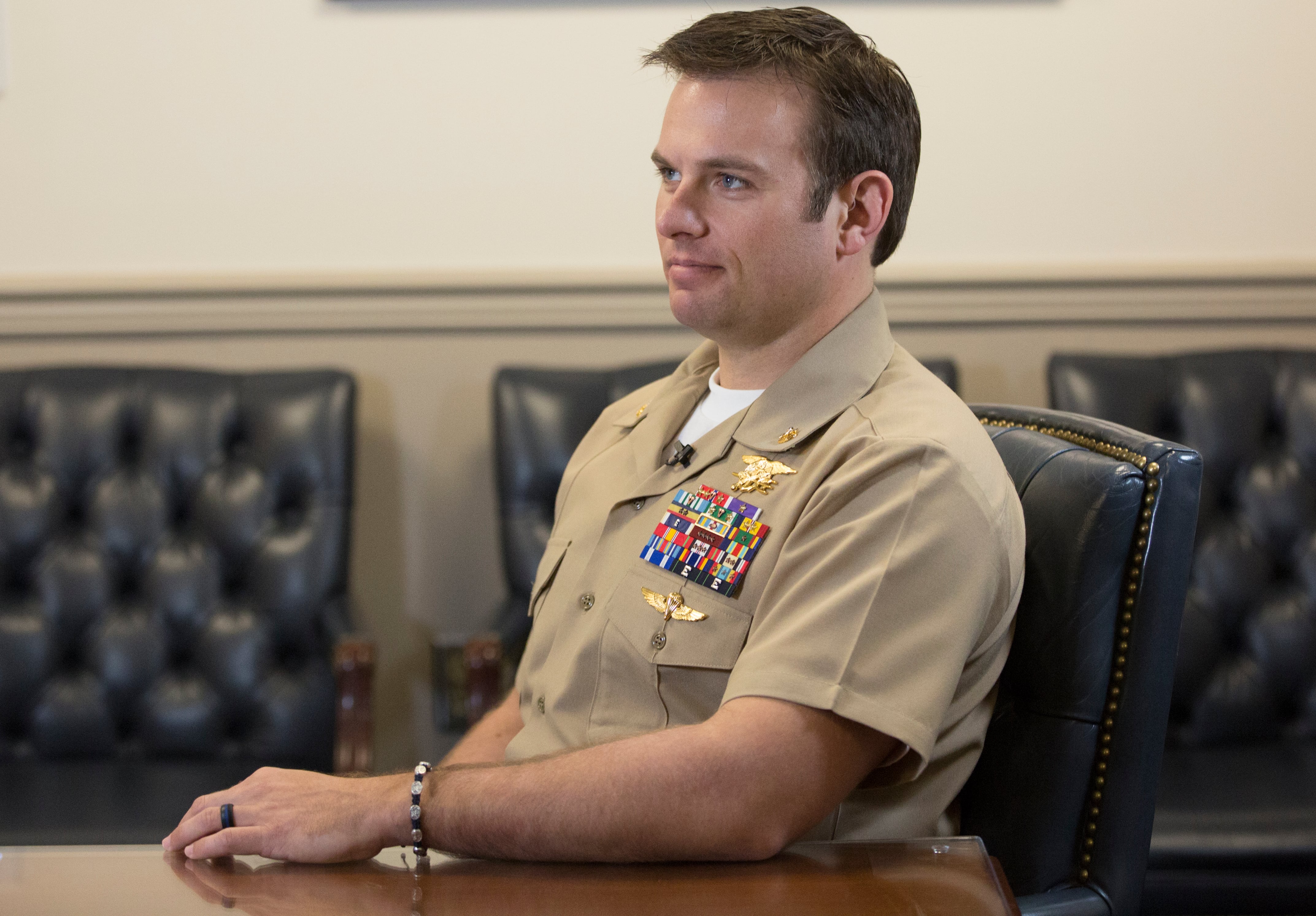
In an interview at the Pentagon, Byers recounted the daring raid and his fallen teammate, SO1 Nicolas Checque.
Photo Credit: Mike Morones/Staff
"I was able to pin him against the wall by his throat, until the team was able to get in there and eliminate that threat," he said.
Once they were safe, Byers got to work on Joseph's condition. He was fine to walk, so they led him out of the building.
"That's when I noticed that our medics were working on Nic," he said, as Checque had been shot in the forehead when he entered the compound. "So we passed off the doctor to the other teammates and being a prior medic myself, went over to start working on Nic."
The 28-year-old operator didn't make it. The mission was a success, but it was bittersweet.
"Our mission was to bring back the American hostage alive, and we did that. In doing so, Nic Checque laid down his life for another fellow American," Byers said. "He truly was and truly is an American hero. He was hard as nails. He loved what he did. I firmly believe that if he had to do it all over again, he would."
Joseph wrote a book about his experience, called "Kidnapped by the Taliban: A Story of Terror, Hope, and Rescue by SEAL Team Six," but Byers said they'd had no contact since.
"I am extremely happy to hear that Senior Chief Byers is receiving the Medal of Honor. Byers and his team are examples of courage, bravery and heroism," Dilip said in a statement through a representative for Morning Star Development, where he is the medical director. "I am so grateful for their dedication for rescuing me as well as bringing security to the Afghan people and to those who desire to see peace and prosperity in this region. On behalf of my family and I, congratulations for this momentous achievement to Senior Chief Byers and the whole team."
'They'll never quit'
Years went by before Byers had any hint that he might receive an award for the mission, he said, adding that his nomination was bumped up from a Navy Cross to the Medal of Honor.
"The process is quite lengthy. They have to do a lot of research and verifying and investigations. So that's been a little over three years since the operation," he said. "But you know, I'm the type of person that I don't believe it until I see it."
Then in December, he got athat fateful call from the White House, with a staff on the other line asking whether he'd be available at a certain date and time to take a call from President Obama.
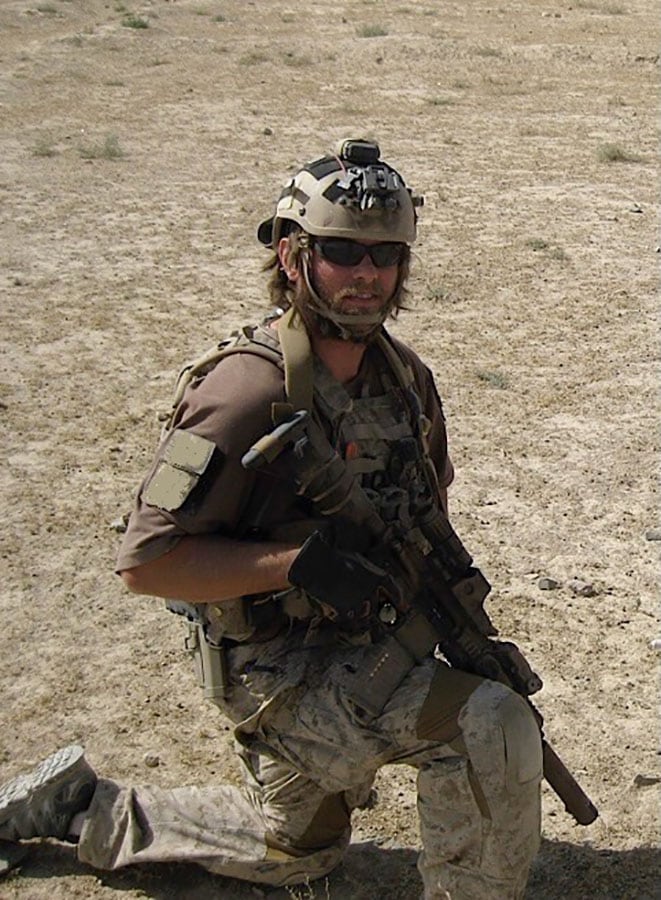
Byers used his body to shield the American hostage while simultaneously seizing one of the guards long enough so that his teammates could kill him.
Photo Credit: U.S. Navy photo
"My initial response was, does anyone ever say no to this? Let me check my schedule. I think it's free," he said.
The president was cordial and friendly, he said, evening calling Byers by his first name.
The award puts Byers in rare company. Since 9/11, 17 service members have received the Medal of Honor. Byers will be just the third sailor, and of them the only one who lived through the action that earned the award. the only one who lived through the action that earned the award.
"I'd like to think that any one of my teammates that night would have done the exact same thing," he said. "And the people I work with, all of them, are truly great people and truly heroes, because I can't tell you how many different times the men I work with have saved my life."
His awards include two Purple Hearts and five Bronze Stars with combat "V," but this is the award that's going to change his life forever.
"The easiest way to describe that is, it's humbling and it's an honor to be a representative of the Navy and the Naval Special Warfare community," he said. "I only hope that I can represent my brothers in a manner that they would approve of."
The U.S. waged war in Iraq and Afghanistan with pinpoint strikes aimed to capture and kill insurgent leaders, raising the profile of special operations forces like SEALs. Their war-time exploits have entered popular culture from books and memoirs, in some cases undermining the "quiet professional" ethos of not talking publicly about their missions. The public, nonetheless, has hailed SEAL veterans like the have earned a reputation in popular culture for writing memoirs, appearing as experts on cable news channels, and in the case of the late retired SOC (SEAL) Chris Kyle as heroes., becoming a veteran icon.
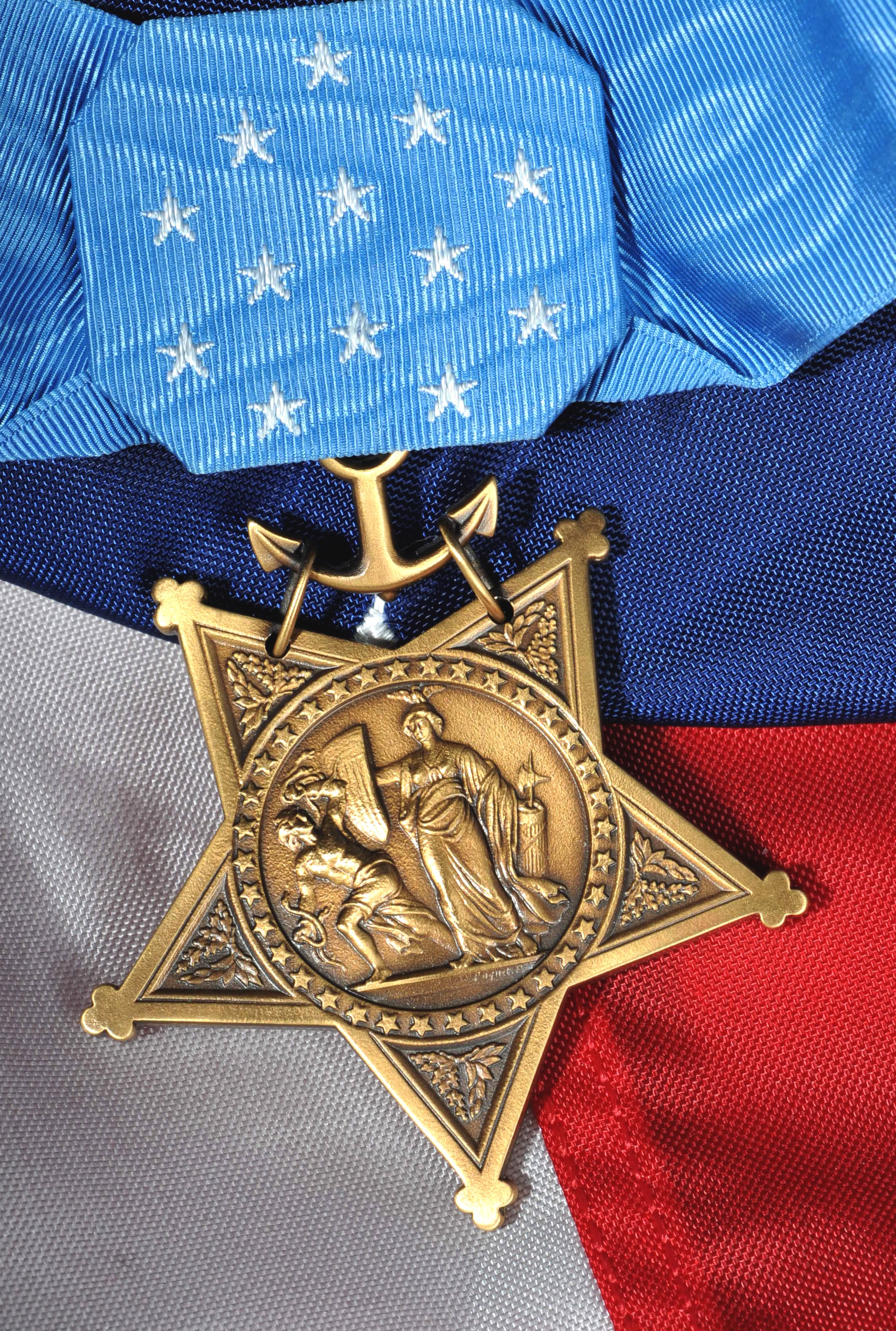
The Medal of Honor will be awarded to Senior Chief Special Warfare Operator (SEAL) Edward C. Byers Jr. by President Barack Obama during a White House ceremony Feb. 29.
Photo Credit: Oscar Sosa/Navy
Byers, however, said he's just looking forward to going back to work and doing what his country asks of him.
"I definitely have no plans on writing a book, or doing any sort of movie, or anything like that," he said.
He heaped the credit on his teammates and his family for getting him through, with a message Checque and his family.
"The guy was truly remarkable human being and he was a true hero and he gave his life to save another American and our nation should be utterly grateful for that," he said, "that there’s men like him, countless others that stand the line 24 hours a day, 365 days a year tot take on our nation’s toughest tasks and missions and they’ll never quit, and they’ll always succeed."
Seventeen years is a long time in the SEALs, a community known for its grueling op tempo and high turnover. One thing has kept him going, Byers said.
"That question is very easy to answer. It's the brotherhood," he said. "The camaraderie that we have, I don't think you can replicate that any place else in the world."
Meghann Myers is the Pentagon bureau chief at Military Times. She covers operations, policy, personnel, leadership and other issues affecting service members.



